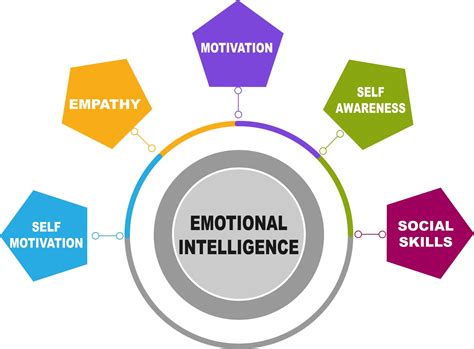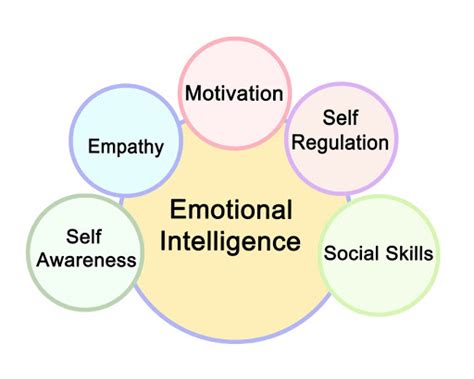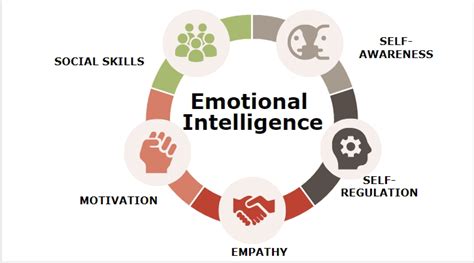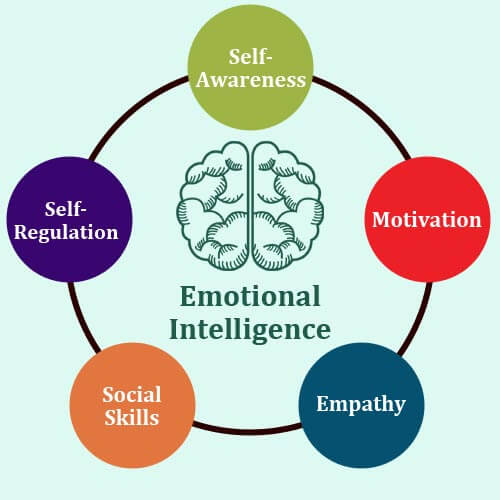Autism Spectrum Disorder (ASD) is a complex neurodevelopmental condition characterized by challenges in social interactions, communication, and restricted or repetitive behaviors. Understanding empathy in the context of autism is crucial for fostering emotional intelligence and supporting individuals with ASD. Empathy, the ability to understand and share the feelings of others, plays a vital role in human connections. However, individuals with autism often face unique challenges in this area. This article explores the relationship between autism and empathy, highlighting scientific research, strategies to enhance empathy, and practical tips for educators and caregivers. By understanding and supporting empathy, we can help individuals with autism build stronger emotional intelligence skills.
rosawblog.com invites you to delve into this topic thoroughly.
1. Overview of Autism Spectrum Disorder (ASD)
Autism Spectrum Disorder (ASD) is a multifaceted neurodevelopmental condition that manifests in early childhood, affecting communication, social interactions, and behavior. It is termed a “spectrum” because it encompasses a wide range of symptoms and severity levels, from highly functioning individuals to those requiring significant support. Common characteristics include difficulties in understanding social cues, engaging in repetitive behaviors, and exhibiting intense interests in specific topics. Sensory sensitivities, such as aversion to certain sounds, textures, or lights, are also prevalent. The exact cause of ASD is not fully understood, but it is believed to result from a combination of genetic and environmental factors. Early diagnosis and intervention are crucial for optimizing developmental outcomes. Therapies, educational strategies, and support systems tailored to individual needs can significantly improve communication skills, social functioning, and quality of life. Understanding ASD is essential for fostering empathy and creating inclusive environments that accommodate the unique challenges and strengths of individuals on the autism spectrum.

2. Definition and Importance of Empathy
Empathy is the ability to understand and share the feelings of another person. It involves recognizing emotions in others, imagining oneself in their situation, and responding with appropriate care and concern. Empathy is a cornerstone of healthy social interactions and relationships, enabling individuals to connect on an emotional level and fostering mutual understanding and support. It is critical in building trust, cooperation, and effective communication.
The importance of empathy extends beyond personal relationships; it plays a vital role in various professional and societal contexts. For educators, healthcare providers, and caregivers, empathy enhances the ability to provide compassionate and effective support, leading to better outcomes for those they serve. In the workplace, empathy contributes to a positive and inclusive culture, improving teamwork and productivity.
For individuals with Autism Spectrum Disorder (ASD), empathy can be particularly challenging due to difficulties in understanding social cues and emotions. However, with targeted strategies and support, empathy skills can be developed and strengthened, significantly improving their social interactions and overall quality of life. Recognizing and fostering empathy in individuals with ASD is essential for promoting emotional intelligence and creating inclusive communities.

3. Challenges Individuals with Autism Face in Empathy
Individuals with Autism Spectrum Disorder (ASD) often encounter significant challenges in developing and expressing empathy. These challenges stem from core characteristics of autism, including difficulties in social communication and interpreting nonverbal cues. People with ASD may struggle to understand facial expressions, tone of voice, and body language, which are essential components of empathetic interactions.
One major challenge is the theory of mind, the ability to attribute mental states—such as beliefs, intents, desires, and emotions—to oneself and others. Many individuals with ASD have difficulty understanding that others have thoughts and feelings different from their own, making it hard to empathize with others’ perspectives.
Another challenge is sensory processing issues. Individuals with autism may be overwhelmed by sensory stimuli, which can make social interactions exhausting and reduce their capacity to engage empathetically. Additionally, the preference for routine and predictability often associated with ASD can limit exposure to diverse social situations, further hindering the development of empathy.
These empathy-related challenges do not imply a lack of caring or willingness to connect with others. Instead, they highlight the need for tailored support and interventions. Through targeted therapies, social skills training, and consistent practice in various social scenarios, individuals with ASD can improve their ability to understand and respond empathetically. By acknowledging these challenges and providing appropriate support, we can help individuals with autism enhance their empathetic abilities and foster more meaningful connections.

4. Scientific Research on Autism and Empathy
Scientific research on autism and empathy has revealed complex relationships between ASD and empathetic abilities. Studies have shown that while individuals with autism may face challenges in cognitive empathy—the ability to understand another’s mental state—they can possess strong affective empathy, which is the capacity to share and respond to another’s emotional experiences.
Neuroimaging studies have identified differences in brain regions associated with social cognition and empathy in individuals with ASD. For example, the mirror neuron system, crucial for understanding others’ actions and emotions, often functions differently in autistic individuals. These variations can affect their ability to intuitively grasp social cues and respond empathetically.
Research also highlights the variability within the autism spectrum. Some individuals with ASD exhibit high levels of empathy, while others may struggle more significantly. This diversity underscores the importance of personalized approaches to support and intervention.
Further studies emphasize the potential for growth in empathy skills through targeted therapies and social skills training. By focusing on enhancing social understanding and communication, individuals with autism can improve their empathetic responses, leading to better social integration and emotional well-being. Understanding the scientific basis of empathy in autism is crucial for developing effective strategies to support those with ASD.
5. Strategies to Enhance Empathy in Individuals with Autism
Enhancing empathy in individuals with Autism Spectrum Disorder (ASD) involves tailored strategies that address their unique challenges and leverage their strengths. One effective approach is social skills training, which focuses on teaching individuals how to recognize and interpret social cues, such as facial expressions and body language. These programs often use role-playing and real-life scenarios to practice empathy in a supportive environment.
Another strategy is implementing cognitive-behavioral therapy (CBT) to help individuals understand and manage their own emotions, which can improve their ability to empathize with others. CBT can also teach perspective-taking skills, enabling individuals to consider and appreciate different viewpoints.
Mindfulness and relaxation techniques can help manage sensory overload and emotional regulation, creating a calmer state that is more conducive to empathetic interactions. Encouraging participation in group activities or structured social settings, like clubs or support groups, provides opportunities for practicing empathy and building social connections.
Using technology, such as apps or virtual reality, can also aid in empathy development by simulating social situations and providing immediate feedback. Consistent reinforcement from caregivers and educators, combined with patience and understanding, is crucial in nurturing empathy in individuals with autism. By applying these strategies, individuals with ASD can improve their empathetic skills, leading to richer and more fulfilling social interactions.
6. Role of Emotional Intelligence in Supporting Empathy
Emotional intelligence (EI) plays a pivotal role in supporting empathy, particularly for individuals with Autism Spectrum Disorder (ASD). EI encompasses the ability to recognize, understand, and manage one’s own emotions and those of others. Developing EI can significantly enhance empathetic capabilities, leading to more effective and meaningful social interactions.
For individuals with autism, fostering EI involves building skills in emotional awareness and regulation. Understanding one’s own emotional responses is the first step toward recognizing and interpreting the emotions of others. This self-awareness enables individuals to navigate social situations with greater ease and sensitivity.
Teaching emotional regulation strategies, such as mindfulness and stress management techniques, helps individuals with ASD remain calm and focused during social interactions. This stability allows them to better attend to and respond to the emotional cues of others.
Enhancing social skills through structured training programs also contributes to higher EI. These programs can provide practical tools for understanding and expressing empathy, such as perspective-taking exercises and communication techniques.
By integrating EI development into support strategies, caregivers and educators can help individuals with autism improve their empathetic abilities. This holistic approach not only enhances social connections but also contributes to overall emotional well-being and personal growth.
7. Case Studies or Personal Stories
Case studies and personal stories provide valuable insights into the experiences of individuals with Autism Spectrum Disorder (ASD) as they develop and express empathy. For example, one case study involves a young man named Alex, who struggled with social interactions due to his autism. Through targeted social skills training and therapy, Alex gradually learned to recognize emotional cues and respond with appropriate empathy. His progress was noticeable in his improved relationships with peers and family, demonstrating the effectiveness of personalized intervention strategies.
Another poignant story is that of Emma, a teenager with ASD who participated in a mindfulness-based program. Emma’s ability to manage her sensory sensitivities and emotional responses enhanced her empathy skills. She began to understand and relate to the feelings of her classmates better, which positively impacted her social interactions and self-esteem.
These personal stories highlight the diverse experiences of individuals with autism and the significant improvements that can be achieved with appropriate support. They underscore the importance of tailored interventions and the potential for growth in empathy, showcasing how targeted strategies can transform lives and foster deeper, more meaningful connections.
8. Practical Tips for Educators and Caregivers
Educators and caregivers play a crucial role in supporting the development of empathy in individuals with Autism Spectrum Disorder (ASD). Here are some practical tips to enhance their efforts:
Use Visual Supports: Visual aids, such as emotion cards and social stories, can help individuals with autism understand and recognize different emotions and social situations. These tools make abstract concepts more concrete and easier to grasp.
Practice Role-Playing: Engage individuals in role-playing activities to simulate various social scenarios. This practice helps them learn how to respond empathetically in real-life situations and improves their ability to interpret social cues.
Implement Structured Social Skills Training: Provide structured programs that focus on teaching specific social skills, including recognizing emotions, perspective-taking, and appropriate responses. Regular practice and feedback are essential for skill development.
Encourage Mindfulness Techniques: Introduce mindfulness practices to help manage sensory overload and emotional regulation. Techniques such as deep breathing and relaxation exercises can improve emotional control and increase empathy.
Foster Inclusive Environments: Create supportive and inclusive settings where individuals with autism can interact with peers and practice empathy in a safe and understanding environment.
Provide Positive Reinforcement: Recognize and celebrate progress in empathetic behavior. Positive reinforcement encourages continued effort and reinforces desired social skills.
By integrating these strategies, educators and caregivers can significantly enhance the empathetic abilities of individuals with autism, fostering better social interactions and emotional connections.
9. Resources for Further Support and Information
For further support and information on enhancing empathy in individuals with Autism Spectrum Disorder (ASD), several valuable resources are available:
Autism Speaks: This organization offers a wealth of information on autism, including resources for educators and caregivers focused on social skills and emotional development. Their website provides guides, toolkits, and research updates.
The National Autistic Society (NAS): NAS provides comprehensive resources on autism, including practical advice for supporting empathy and social skills. Their materials include training programs and support for families and professionals.
Social Skills Training Programs: Programs such as the PEERS® (Program for the Education and Enrichment of Relational Skills) offer structured social skills training designed to improve empathy and social interactions for individuals with autism.
Mindfulness-Based Interventions: Websites like Mindful.org provide resources and practices that can be adapted for individuals with autism to enhance emotional regulation and empathy.
Books and Publications: Books like “The Empathy Advantage” by Dr. David Rock and “The Autistic Brain” by Temple Grandin offer insights into empathy and autism, providing practical strategies and research findings.
These resources can aid in developing effective strategies and provide ongoing support for enhancing empathy in individuals with ASD.
10. Conclusion and Call to Action
In conclusion, understanding and supporting empathy in individuals with Autism Spectrum Disorder (ASD) is essential for fostering meaningful social connections and enhancing emotional well-being. Through the exploration of autism and empathy, it is clear that while individuals with ASD face unique challenges in developing empathetic skills, targeted strategies and interventions can lead to significant improvements. Social skills training, cognitive-behavioral therapy, mindfulness practices, and structured support systems all play a vital role in enhancing empathy and emotional intelligence.
Educators and caregivers are pivotal in this process, and their efforts in creating supportive, inclusive environments and employing practical techniques can greatly benefit individuals with autism. By utilizing available resources, including organizations like Autism Speaks and the National Autistic Society, and implementing strategies tailored to individual needs, we can support the development of empathy and improve the quality of life for those with ASD.
We encourage you to explore these strategies and resources, and to advocate for inclusive practices within your communities. Together, we can work towards creating a more empathetic and understanding world, where individuals with autism are empowered to build strong, meaningful relationships and achieve their full potential.
rosawblog.com
